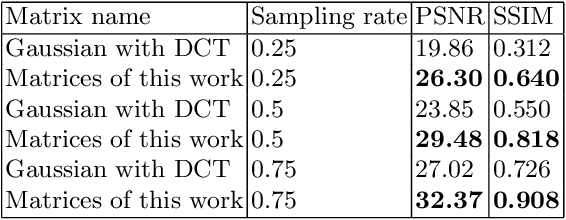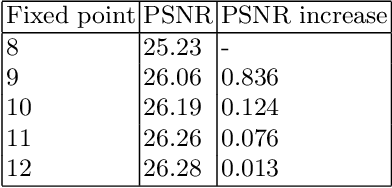Real-time FPGA Design for OMP Targeting 8K Image Reconstruction
Paper and Code
Oct 10, 2021



During the past decade, implementing reconstruction algorithms on hardware has been at the center of much attention in the field of real-time reconstruction in Compressed Sensing (CS). Orthogonal Matching Pursuit (OMP) is the most widely used reconstruction algorithm on hardware implementation because OMP obtains good quality reconstruction results under a proper time cost. OMP includes Dot Product (DP) and Least Square Problem (LSP). These two parts have numerous division calculations and considerable vector-based multiplications, which limit the implementation of real-time reconstruction on hardware. In the theory of CS, besides the reconstruction algorithm, the choice of sensing matrix affects the quality of reconstruction. It also influences the reconstruction efficiency by affecting the hardware architecture. Thus, designing a real-time hardware architecture of OMP needs to take three factors into consideration. The choice of sensing matrix, the implementation of DP and LSP. In this paper, a sensing matrix, which is sparsity and contains zero vectors mainly, is adopted to optimize the OMP reconstruction to break the bottleneck of reconstruction efficiency. Based on the features of the chosen matrix, the DP and LSP are implemented by simple shift, add and comparing procedures. This work is implemented on the Xilinx Virtex UltraScale+ FPGA device. To reconstruct a digital signal with 1024 length under 0.25 sampling rate, the proposal method costs 0.818us while the state-of-the-art costs 238$us. Thus, this work speedups the state-of-the-art method 290 times. This work costs 0.026s to reconstruct an 8K gray image, which achieves 30FPS real-time reconstruction.
 Add to Chrome
Add to Chrome Add to Firefox
Add to Firefox Add to Edge
Add to Edge